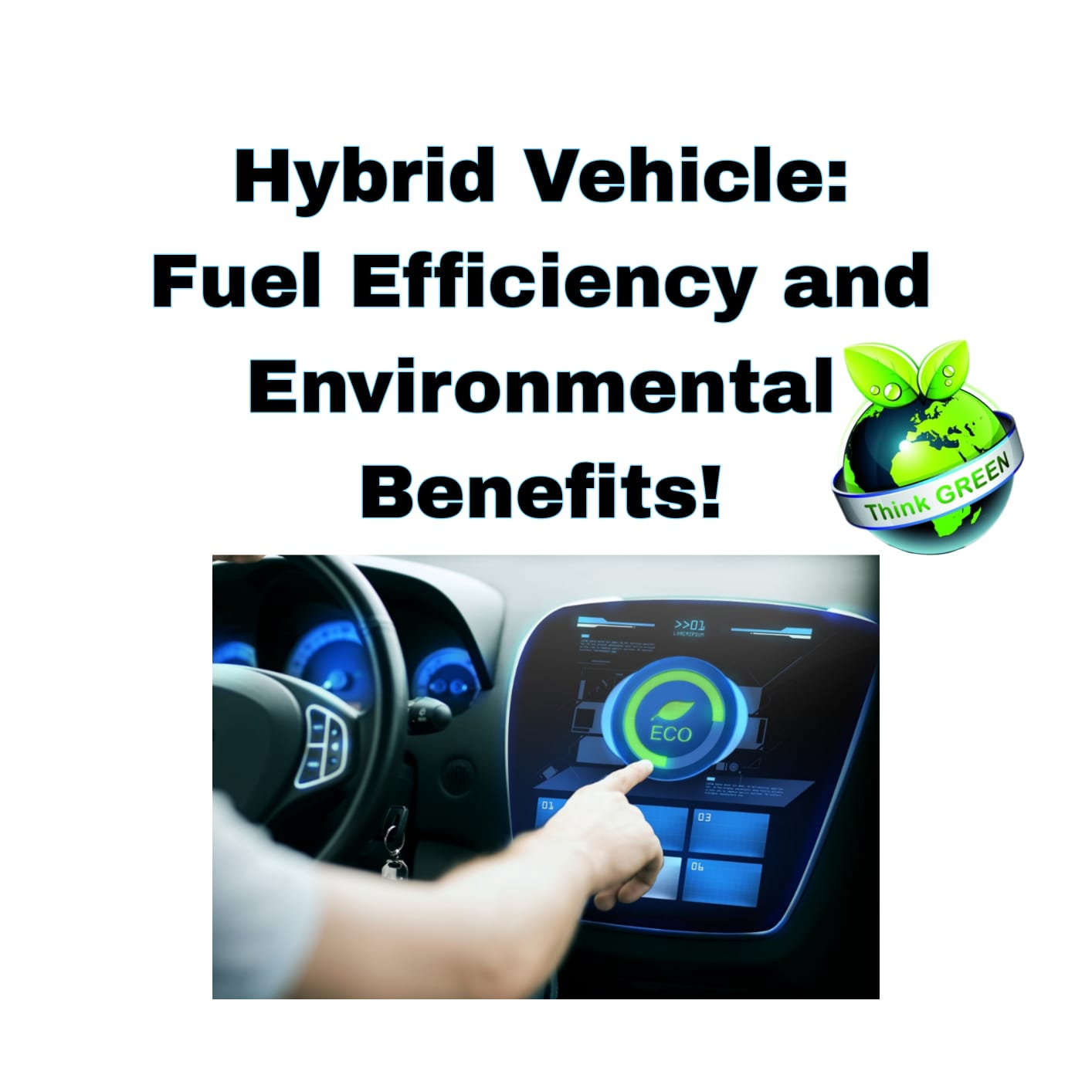Hybrid vehicles, at the crossroads of innovation and sustainability, have emerged as a promising solution to the environmental challenges we face in the realm of transportation. These revolutionary vehicles are leading the charge toward a cleaner, more eco-conscious future, where the harmonious fusion of electric and gasoline power propels us toward a greener horizon.
In this article, we’ll delve into the world of hybrid vehicles, exploring what they are. And how they work, and the benefits they offer.
What is a Hybrid Vehicle?
A hybrid vehicle, as the name suggests, is a type of automobile that combines two or more distinct power sources to propel the vehicle. Most commonly, these power sources are an internal combustion engine (usually gasoline) and an electric motor. The primary goal of a hybrid vehicle is to provide improved fuel efficiency and lower emissions compared to traditional gasoline-powered cars.

Types of Hybrid Vehicles:
Hybrid vehicles come in various types, each with its unique characteristics:
- Full Hybrid: These vehicles can operate on electric power alone or with the internal combustion engine. They can also use a combination of both power sources.
- Mild Hybrid: Mild hybrids primarily use their internal combustion engine for propulsion. The electric motor assists in various ways. Such as providing extra power during acceleration and helping with start-stop systems to improve fuel efficiency.
- Plug-in Hybrid: These hybrids can be charged via an electric outlet. They offer a longer all-electric driving range and can be used for short commutes without using the gasoline engine.
Charging and Range:
- Full and plug-in hybrids have batteries that can be recharged. Plug-in hybrids can usually be charged via a standard household outlet, while some full hybrids rely solely on regenerative braking to charge the battery.

Maintenance and Repairs:
- Hybrid vehicles tend to have lower maintenance costs over time due to reduced wear and tear on the brakes and engine. However, when repairs are necessary, they may be more expensive because of the specialized components and technology involved.
Hybrid Vehicle Brands:
- Many major automakers produce hybrid vehicles, including Toyota, Honda, Ford, Chevrolet, Hyundai, and more. Each brand may have different hybrid models designed to suit various preferences and needs.
Environmental Impact:
- Hybrid vehicles help reduce greenhouse gas emissions and air pollution. By using electricity for short trips and stop-and-go traffic, they contribute to a cleaner environment and help combat climate change.
Driving Experience:
- Hybrid vehicles are known for their quiet and smooth operation when running in electric-only mode. They offer a comfortable and technologically advanced driving experience, often with features like regenerative braking, adaptive cruise control. And energy-efficient climate control systems.
Resale Value:
- Hybrid vehicles tend to hold their value well in the used car market, making them a good long-term investment for many buyers.
Government Incentives:
- In some regions, governments offer incentives for hybrid vehicle buyers, such as tax credits, rebates, and carpool lane access.
Challenges:
- Hybrid vehicles still face some challenges, including the need for improved battery technology to extend electric-only range and the potential environmental impact of battery production and disposal.
How Do Hybrid Vehicles Work?
Hybrid vehicles operate using a combination of two power sources: the internal combustion engine and an electric motor. Here’s a simplified explanation of how they work:
- Energy Regeneration: Hybrid vehicles feature a technology known as regenerative braking. When you hit the brakes, the electric motor converts the energy lost during braking into electricity, which is then stored in the vehicle’s battery for later use.
- Electric-Only Mode: In certain driving conditions, hybrid vehicles can switch to electric-only mode. This means the internal combustion engine is temporarily turned off, and the vehicle relies solely on the electric motor for power. This mode is particularly effective in stop-and-go traffic and at lower speeds.
- Engine-Assist Mode: When more power is needed, such as during acceleration or highway driving, the internal combustion engine and the electric motor work together. This combination allows the vehicle to maintain performance while still improving fuel efficiency.
- Automatic Mode Switching: The vehicle’s onboard computer system intelligently manages the power sources, seamlessly transitioning between the internal combustion engine and the electric motor to optimize fuel efficiency and performance.
Benefits of Hybrid Vehicles
- Improved Fuel Efficiency: One of the primary advantages of hybrid vehicles is their superior fuel economy. By using electricity during low-speed, low-demand situations and the internal combustion engine when necessary, hybrids can significantly reduce fuel consumption.
- Reduced Emissions: With the ability to operate in electric-only mode, hybrid vehicles produce fewer emissions than traditional gasoline-powered cars. This contributes to a cleaner environment and helps combat air pollution.
- Lower Operating Costs: Though the initial cost of purchasing a hybrid vehicle may be higher, owners tend to save money in the long run due to lower fuel consumption and reduced maintenance costs.
- Regenerative Braking: The regenerative braking system not only saves energy but also reduces wear and tear on the brake pads, extending the vehicle’s lifespan.
- Government Incentives: Many governments offer tax incentives and rebates to encourage the adoption of hybrid vehicle, making them an attractive choice for environmentally conscious consumers.
Conclusion
Hybrid vehicles represent a significant step towards more sustainable transportation. Offering improved fuel efficiency, reduced emissions, and a cleaner driving experience. As technology continues to progress. Hybrid vehicle will likely play an increasingly vital role in the transition to a greener and more sustainable future of mobility.
See More: Emo Robot: The Next Frontier in Emotional AI???



I was looking through some of your blog posts on this website and I think this internet site is real informative ! Keep on posting.